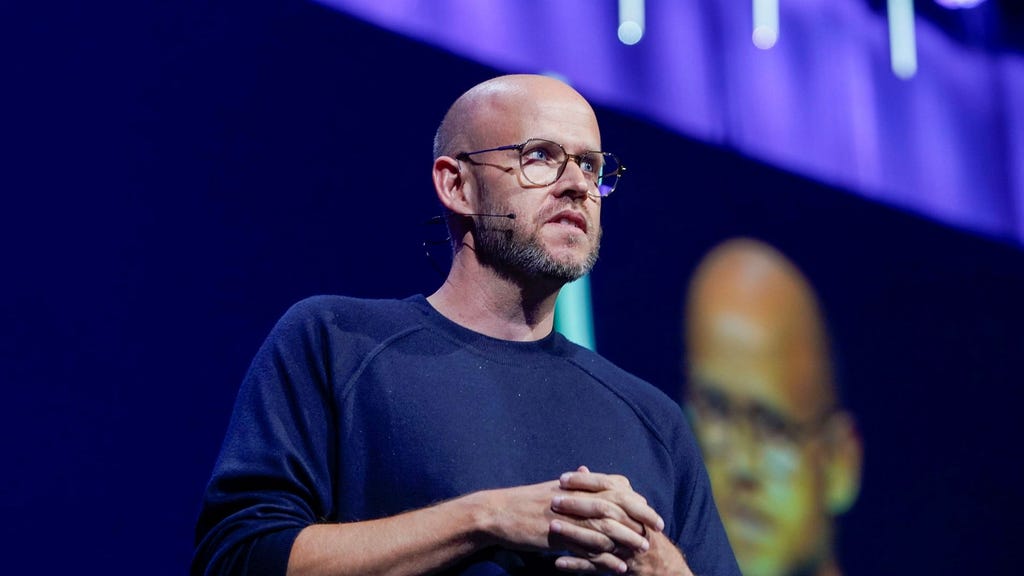Liz Pelly’s ”Mood Machine” challenges the prevailing narrative of Spotify as the savior of the music industry, arguing that the streaming giant’s business model prioritizes profit over artistry, leading to economic and aesthetic exploitation of musicians. While Spotify boasts millions of users and a convenient platform for accessing music, Pelly exposes the company’s true product: listener data, generated by continuous, often passive consumption, which is then sold for profit. This focus on data monetization, Pelly argues, has far-reaching consequences for the music industry as a whole.
The book dismantles the myth of Spotify as a champion of music lovers. Pelly reveals that Spotify’s most profitable customers are not discerning audiophiles but rather passive listeners who engage with generic, algorithm-driven playlists designed for specific moods or activities. This has led to the proliferation of ”fake artists” – essentially copyright-free musical wallpaper – that dominates these playlists, often garnering millions of streams while earning minimal royalties for their creators, if any. Spotify actively promotes these playlists, promising enhanced productivity, relaxation, or sleep, despite the fact that the impact of music is subjective and varies significantly among individuals.
This pursuit of continuous, background listening, Pelly argues, has further influenced the very sound of contemporary music. A new style, sometimes referred to as “Spotifycore,” characterized by its inoffensive and ambient qualities, thrives within the platform’s ecosystem. This easily digestible sound is more likely to land on popular playlists, further incentivizing artists and record labels to prioritize this particular aesthetic. The competition for playlist placement has also given Spotify leverage over artists, allowing them to negotiate lower royalty rates in exchange for increased visibility. This creates a vicious cycle where artists are forced to compromise their artistic integrity and financial well-being simply to reach an audience.
Pelly provides further evidence of Spotify’s exploitative practices through leaked internal communications. These messages reveal employees expressing discomfort over the company’s policies that diminish already meager artist royalties. One employee laments, ”Artists get less, we get more,” while other conversations allude to managerial pressure to prioritize cheaper ”fake artists” in the platform’s algorithmic recommendations. This underscores a corporate culture that prioritizes profit maximization at the expense of artistic fairness and compensation. Pelly paints a picture of a company that cloaks itself in the image of a music-loving, rebellious ”punk” while simultaneously engaging in practices that undermine the very artists who fuel its platform.
While acknowledging that Spotify has indeed revived the music industry’s revenue stream, Pelly argues that the benefits primarily accrue to major label executives, allowing them to maintain their lavish lifestyles. Independent artists, on the other hand, face increasing challenges in a system rigged to favor the major players. Spotify’s dominance leaves independent musicians with little choice but to engage with a platform designed to exploit them. This power imbalance is exacerbated by policies like the 2023 rule requiring artists to achieve over 1,000 streams annually to even qualify for royalty payments, further marginalizing smaller, independent acts.
Despite the bleak picture she paints, Pelly offers a glimmer of hope through grassroots activism and DIY initiatives. She highlights the potential of digitally accessible local music libraries as an alternative model for music distribution and consumption. This provides a starting point for policy discussions and potential solutions to ensure fair compensation for artists. Pelly’s book serves as a call to action, urging policymakers and music lovers alike to advocate for more equitable systems that support independent artists and preserve the diversity and vitality of the music ecosystem. Ultimately, she argues, leaving the field to profit-driven tech companies will only result in further exploitation, devaluation of music, and a homogenized soundscape.














